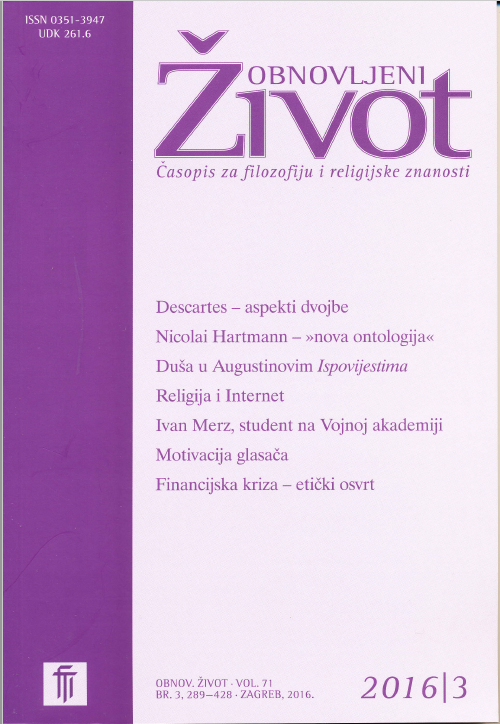Voter Motivation — Morally–Based Decisions and Responsibility for Consequences
Keywords:
positive consumer motivation, negative consumer motivation, voters, political marketingAbstract
Prompted by the recent Croatian presidential elections, the authors have put forward propositions contextually related to the field of observed consumer behaviour from the voter’s perspective. Since each end–user can also be termed a consumer, analogous to this claim and as seen within the framework of political marketing, each stakeholder in the democratic election process — that is, the voter — can be defined as a consumer and ultimately a final decision–maker: Should I go to the polls or not? Should I vote »for« or »against«? In this particular case, based on facts presented, the question arises as to the motivation of the voter: Is the voter positively or negatively motivated, or are we dealing with a positive or negative driving force? Have the voters voted »for« or »against«? Such a dilemma is a consequence, aside from other factors, of the many claims promoted by the Croatian media which can be summed up by saying that voters had in fact voted »against«. In other words, they were negatively motivated and thus expressed their dissatisfaction with the (former) current social and economic situation in the Republic of Croatia; furthermore, they did not take into account the programs put forward by presidential candidates. This paper describes in detail the context of motivation as the consumer’s, or rather the voter’s driving force — this time in the context of political marketing. The three most well–known theories of consumer motivation are also cited and comparisons are drawn. Through an analysis of the current situation and comparisons among the said theories, the authors have come to the conclusion that the impact of positive motivation upon the ultimate decision of the voter has prevailed.
Downloads
Published
Issue
Section
License
Jednom prihvaćeni članak obvezuje autora da ga ne smije objaviti drugdje bez dozvole uredništva, a i tada samo uz bilješku da je objavljen prvi put u Obnovljenom životu. Uredništvo će obavijestiti autora o prihvaćanju ili neprihvaćanju članka za objavljivanje.
Članci objavljeni u časopisu se, uz prikladno navođenje izvora, smiju besplatno koristiti u obrazovne i druge nekomercijalne svrhe.


